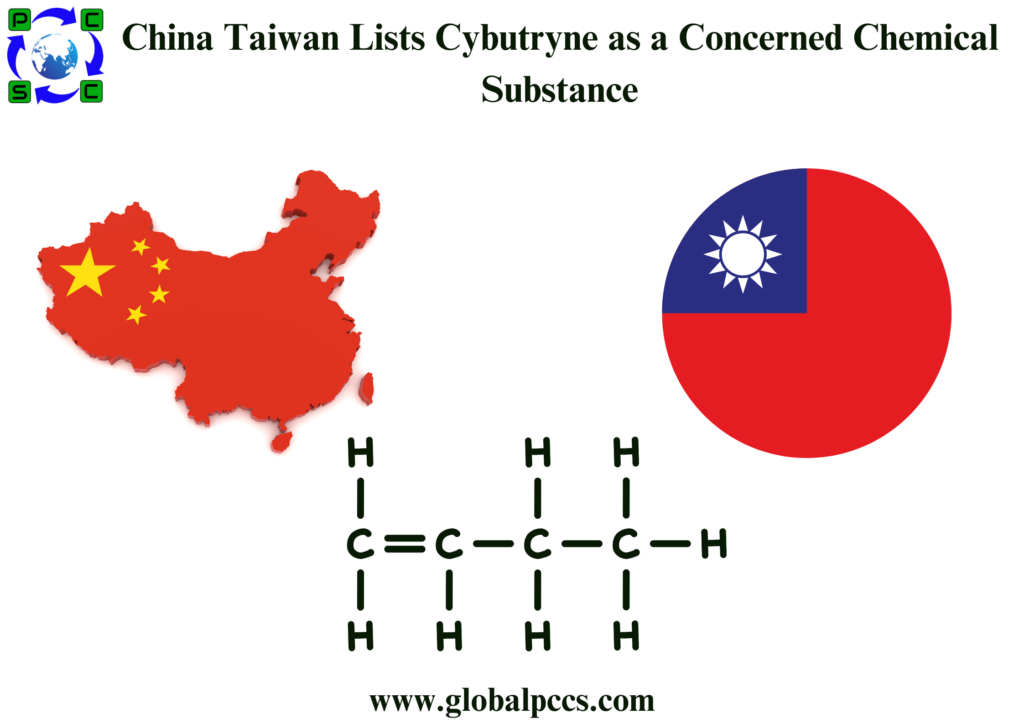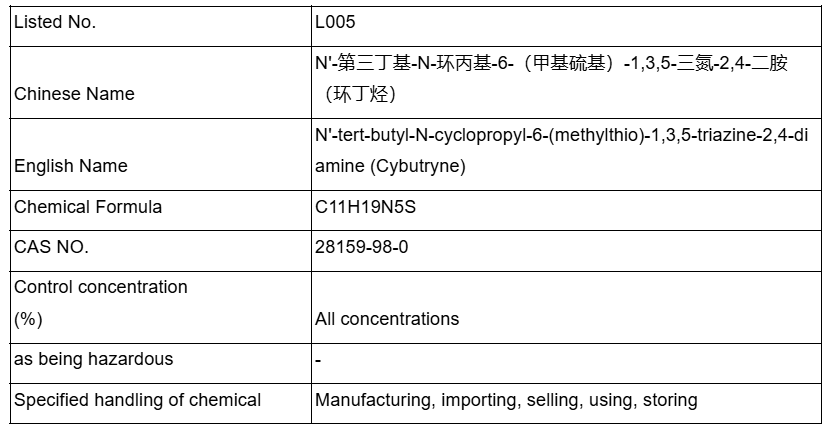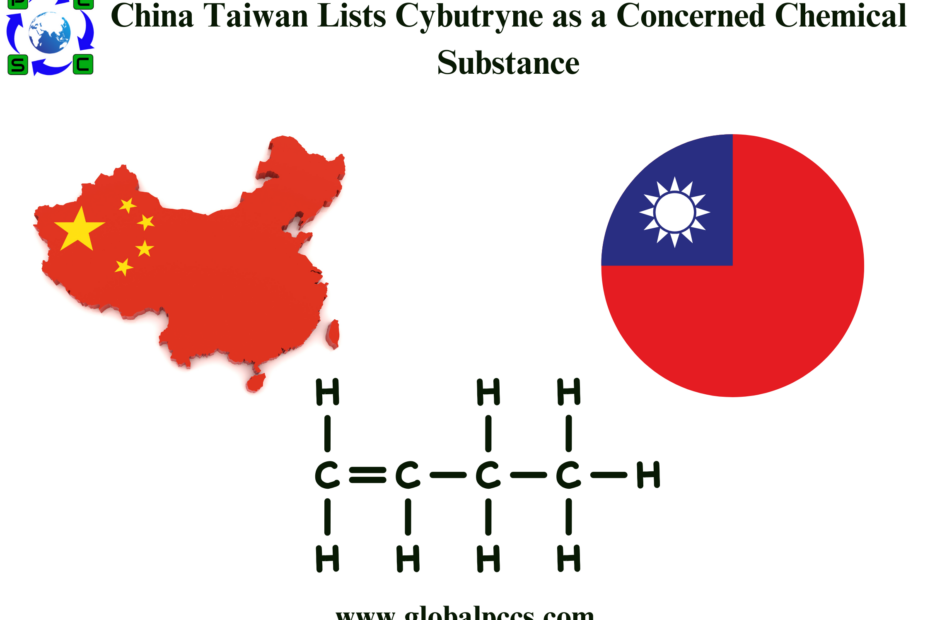 On November 26, 2024, the Chemical Substance Bureau, the Ministry of Environment in Taiwan, China, released a draft amendment on the Categories and Management of Handling for Concerned Chemical Substances, in alignment with the regulations of the International Convention on the Control of Harmful Anti-fouling Systems on Ships. The draft lists N’-tert-butyl-N-cyclopropyl-6-(methylthio)-1,3,5-triazine-2,4-diamine (hereinafter referred to as cybutryne) as a concerned chemical substance, setting its control concentration and operational methods to align with international management trends.
On November 26, 2024, the Chemical Substance Bureau, the Ministry of Environment in Taiwan, China, released a draft amendment on the Categories and Management of Handling for Concerned Chemical Substances, in alignment with the regulations of the International Convention on the Control of Harmful Anti-fouling Systems on Ships. The draft lists N’-tert-butyl-N-cyclopropyl-6-(methylthio)-1,3,5-triazine-2,4-diamine (hereinafter referred to as cybutryne) as a concerned chemical substance, setting its control concentration and operational methods to align with international management trends.
The Ministry of Transportation, in order to align with international maritime systems, adopted the amendment to the International Convention on the Control of Harmful Anti-fouling Systems on Ships (MEPC.331 (76)), and has prohibited the use of cybutryne in anti-fouling systems under the Ship Law since 2022.
The Ministry of Environment noted that cybutryne is resistant to hydrolysis and does not easily volatilize from soil surfaces, remaining in water for up to 10 years and exhibiting bioaccumulation properties. This chemical has been widely used as an insecticide, an algaecide in anti-fouling paints, and as a substitute for organotin compounds in anti-fouling systems and related paint products. Considering that the EU and the USA have already banned cybutryne for use as biocides or in anti-fouling products, the Ministry of Environment, following international bans, added cybutryne to the List of Concerned Chemical Substances, specifying its prohibition in the manufacture of anti-fouling paints, systems, and biocides.


Enterprises operating with the cybutryne must complete the following items by the deadlines:

Additionally, the Ministry of Environment emphasizes that, apart from the requirements for applying for approval documents, labeling, and reporting operational records, the sale of cybutryne online is also prohibited. Violators can be fined up to NT$300,000, and in cases causing death or harm to human health, the maximum penalty can be life imprisonment or a fixed-term imprisonment of at least 7 years.








 Authorised IMDS & CDX Training & Consulting partner for
Authorised IMDS & CDX Training & Consulting partner for






